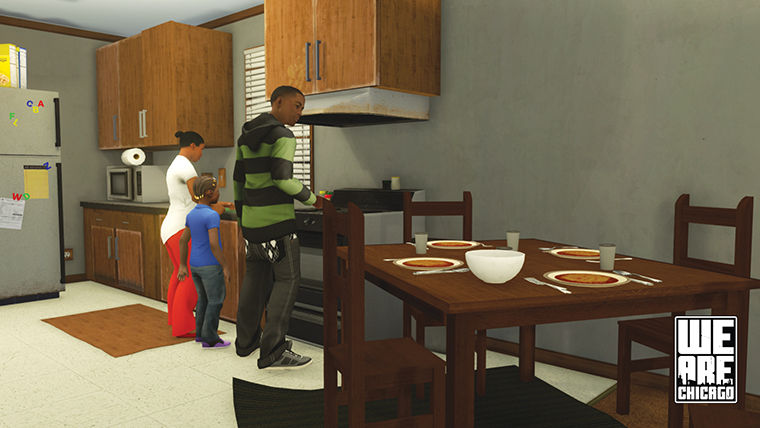New video game depicts South Side stories
Video game “We Are Chicago” takes on social issues prevalent in Chicago’s South Side.
September 19, 2016
A new video game titled “We Are Chicago” will put South Side violence and poverty on the screens of gamers worldwide.
The game, developed by Culture Shock Games, puts players into the shoes of Aaron, a teenager who needs to find out why his best friend suddenly and mysteriously stops showing up at high school.
Michael Block, founder of Culture Shock Games, said he was inspired to make “We Are Chicago” after doing volunteer work in the Englewood neighborhood. He said members of the community told him they were frequently mugged, attacked or held at gunpoint.
Block said he incorporated those stories into the narrative of “We Are Chicago” in an attempt to give the game more emotional weight. He added the choices in the game often have no right or wrong option, leaving players to make choices in between.
“If [you have] to make choices for a [real] character, it changes the dynamic substantially,” Block said.
The release of the game was pushed back from this year to the first quarter of 2017 because Block said the visual components of the game were redesigned.
Games that tackle social issues are rare. One similar title is “Anti War Game,” which was released in the wake of 9/11 and puts players in the role of the president, asking them to choose between social, military and foreign aid spending while trying placate the masses.
Josh On, an interaction designer, created “Anti War Game” in 2002 while the U.S. was considering invading Iraq. He said the game made citizens think about decisions that affect society as a whole.
“You could spend a lot of time describing [these systems], but you can also use the medium of a game,” On said. “A video game is a really good way to not just describe a system, but to predict the feeling of it and give somebody a chance to understand it in a more dynamic way.”
Tom Dowd, associate chair of the Interactive Arts & Media Department, said some people put socially conscious games into a genre called “activist” or “propaganda” games.
Dowd added that video games cannot truly offer social solutions because every action and reaction a gamer can experience was planned by the designers.
“You’re not going to sit down with some urban simulator of Chicago and say, ‘Oh my god! This is what we have to do,’” Dowd said. “[It’s] all been built in. You discover the effects of [your choices] as you’re playing for the first time, but somebody designed that.”
He said this does not mean “We Are Chicago” serves no purpose.
“Maybe it will be illuminating,” he said. “Maybe it will inform you in ways you hadn’t previously been informed because you hadn’t thought about it in that regard.”
Stephanie Tinsley, a video game publicist with no ties to “We Are Chicago,” tweeted, “I have never been stopped in my tracks by a game until today,” after she saw “We Are Chicago” at the PAX West convention in Seattle on Sept. 3.
“[‘We Are Chicago’’s] signage had black people on it,” Tinsley told The Chronicle. “That isn’t something you see very often [in games], so it instantly caught my eye.”
Though Tinsley is based in Los Angeles, she said “We Are Chicago” speaks to more than just Chicago.
“I don’t have the solutions,” Tinsley said. “Starting to tell these stories and educating people is a really good start.”








